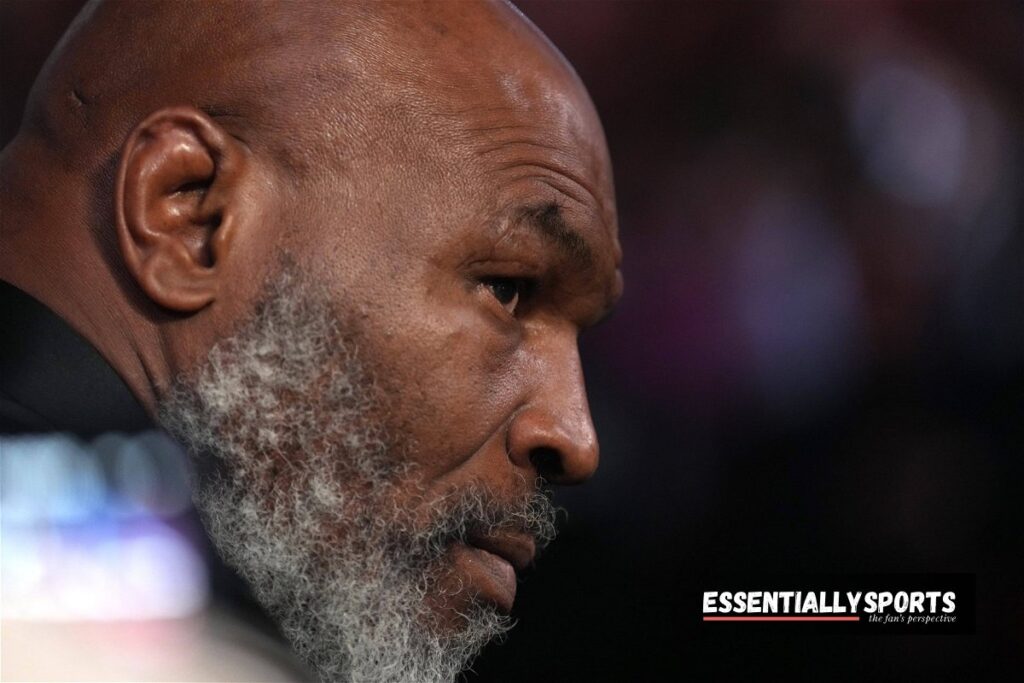Mike Tyson He retired from professional boxing in 2005. Kevin McBrideTyson's parting words were: “The moment they started hitting me, I realized I no longer had the strength. I have the ability to maintain my strength, but I don't have the courage to fight. I can't think anymore… I'm no longer an animal. Yes, I probably won't fight anymore. rear sSince retiring from the ring in 2005, aside from the occasional visit to watch a high-profile boxing match, Tyson has been far less involved with the business side of boxing than one might imagine. Still not recovering from his bankruptcy in 2003, “Iron Mike” has explored other avenues, including film and TV appearances, to get back on financial footing. And who can forget Tyson's own one-man stage show, “The Undisputed Truth,” which has been performed in several cities around the world.
But it wasn't until 2013 that Tyson considered returning to boxing, after his former business partner, Gary Jonas, came up with the idea to head a promotional company called Iron Mike Productions. After being cheated out of millions of dollars in fight profits by his own promoter, Tyson Don KingThe motto of Tyson's company has always been to put the interests of the fighters first. But suddenly it had to shut down. But why? In a recent interview with Thaboxingvoice, the owner of Probox TV, a streaming service dedicated to boxing, revealed that Al Haymon and his promotion company PBC had engaged in shady business deals that led to the closure of his and Tyson's pet project.
Gary Jonas was the CEO of Iron Mike Productions. Along with Tyson, he managed the company's day-to-day operations and business operations. IMP boasted a team of incredible fighters willing to put their careers in the hands of a man with a decade of experience in the cutthroat world of boxing. Tyson's treasure trove of fighting knowledge must have attracted a new generation of fighters hoping to get their professional careers going in the right direction. But what went wrong? Let's start at the beginning.
advertisement
Article continues below this ad

Jonas began the interview with a brief explanation of how the company started, then provided a list of fighters who were part of the now-defunct company. “I thought I'd go to Mike Tyson and ask him if he wanted to be my partner. Maybe he'd join forces with me and maybe I'd get a door open at Showtime or HBO. Well, I tried to get to a point. We've been doing well. Signing Ericson Rubin The day he turned 18… um… Sammy Vasquez Jr. There was a champion [Juan Carlos] Payano and [Argenis] Mendes. .ah…Felix Diaz “We had a gold medalist, we had a pretty solid team, and we had a lot of guys who were ranked in the top five.” Gary Jonas recalls.
However, the major broadcasting stations at the time showtimeand ESPN I called Jonas and told him I no longer wanted to do business with him. Upon further investigation, I discovered that Tyson's former business partner, Al Haymon's PBC, “Use all your TV time.”
advertisement
Article continues below this ad
Mike Tyson and the Last Resort!
“What happened is (investment firms) Waddell & Reed and PBC Al Haymon got together and bought all of the TV stations. “It's time. They bought it! Usually they pay us. This time they were paying them. So this is a radical move. We didn't have any more TV time.” he revealed on the podcast.
Frustrated with the lack of media exposure for the fighters and the predatory business tactics, Jonas spoke to his then-business partner Tyson on the phone and decided to end the venture. “I called Mike. I said to Mike, 'I've got 10 guys in the top five and I can't afford to put them on TV.' Mike said, 'I get it.' I said, if that's going to happen, I don't want to be in the business. Television has a disrespect for the boxing business and they do things like this. Let's get out of here.” “That was the end of Tyson's promotional career,” he lamented.
advertisement
Article continues below this ad
But what about the company's fighters? They ultimately decided to move their team of fighters under the supervision of Al Haymon and PBC, who bought the TV rights. “I said I'd bring them to Haymon, follow the money and make it work for Haymon. So one day we had 12 fighters working for Al Haymon and they all did very well.”
Tactics like these have also put Al Haymon's PBC at odds with other promotional companies, including Top Rank and Golden Boy Promotions. In 2015, Top Rank filed a $100 million antitrust fine against Al Haymon's PBC, which was later settled out of court. With predatory tactics like these, it's no wonder Mike Tyson was hesitant to get back into the boxing industry after leaving it in 2005. What do you think about Al Haymon's business move? Or do you think it was a fair move, given the highly competitive world of professional boxing? Let us know in the comments below.

